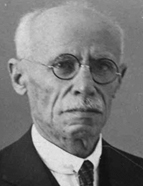

Borges de Macedo considered the author ’ s framework still valid in the second half of the 20 th century. In looking for the dominant product by era (land, sugar, pepper, gold, wine), he did not intend to present it as exclusive . A s regards the chronology or periodisation, he accepted an audacious conception for his time, 1128-1411 (not 1383-85), 1411-1557 (the end of the reign of D. João III, not 1580) and 1557-1640. In his economic history, he considered geographical and demographic conditions, labour conditions, the state’s finances, and its participation in trade, seeking a comprehensive understanding . In this attitude , he was close to that of Oliveira Martins. These issues are evident in his participation in Damião Peres ’ História de Portugal [History of Portugal] , in the different weight he gives to each aspect in the overviews of volumes II (1929), III (1931) and V (1933). Following his death, Damião Peres did not replace him with another historian: he personally took charge of the economic history overviews in the following volumes.
Lúcio de Azevedo ’ s presence in Portuguese-language historiographical production in Brazil and, for Brazil, in Lisbon ’ s cultural and academic circles should also be noted. While at first, he argued for the position of Brazil, as well as the United States of America, in world history, in the third phase of the author ’ s historiographical production , it was clear that he was once again looking at the history of his country, re-evaluating Portugal ’ s role in the Iberian Peninsula, Europe and the world in the period between the two great wars of the 20 th century. Both his life experience and his contacts with the great historians he studied, including Stewart Chamberlain, Werner Sombart and Max Weber, contributed to this. His ability to synthesise, the concept of society as an organism, the search for internal coordination and a sense of evolution are remarkable. With these values, he took part in the historical debate led by Seara Nova [New Plantation] and Nação Portuguesa [Portuguese Nation] , which called for renewal, opening himself up to the fields of aesthetics, science and technology, and legal studies. He did so with emotion and sensitivity, distinguishing between circumstances, seeking to understand men in their time, evaluating fundamental issues of Portuguese culture in the tension between the renewal of an ideal, the concept of the Fifth Empire resurrected in the 20 th century through Hispanic cultures, and the other extreme, the negative and disenchanted extreme, with which he sometimes observed previous eras.
This work is financed by national funds through FCT - Foundation for Science and Technology, I.P, in the scope of the projects UIDB/04311/2020 and UIDP/04311/2020.
